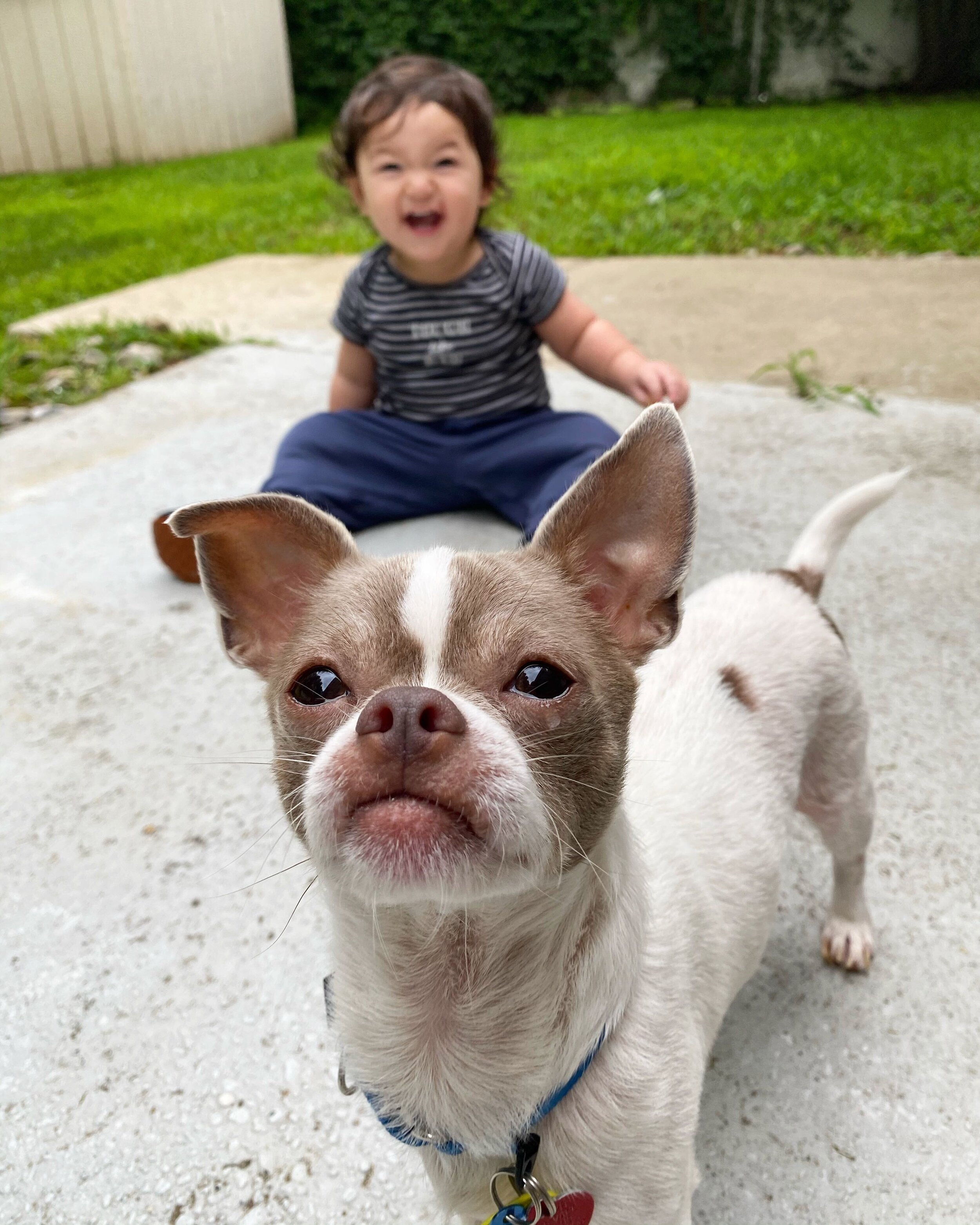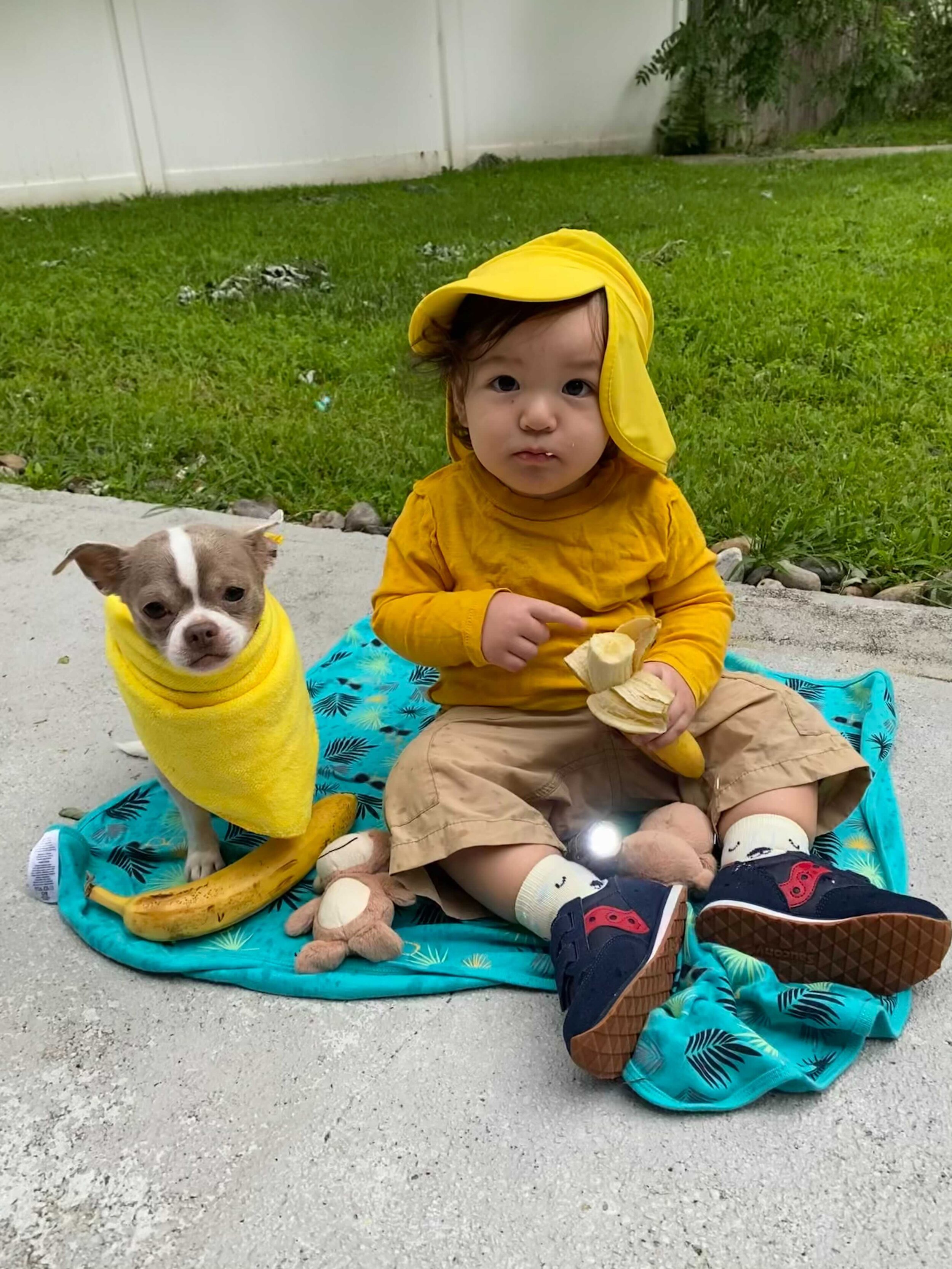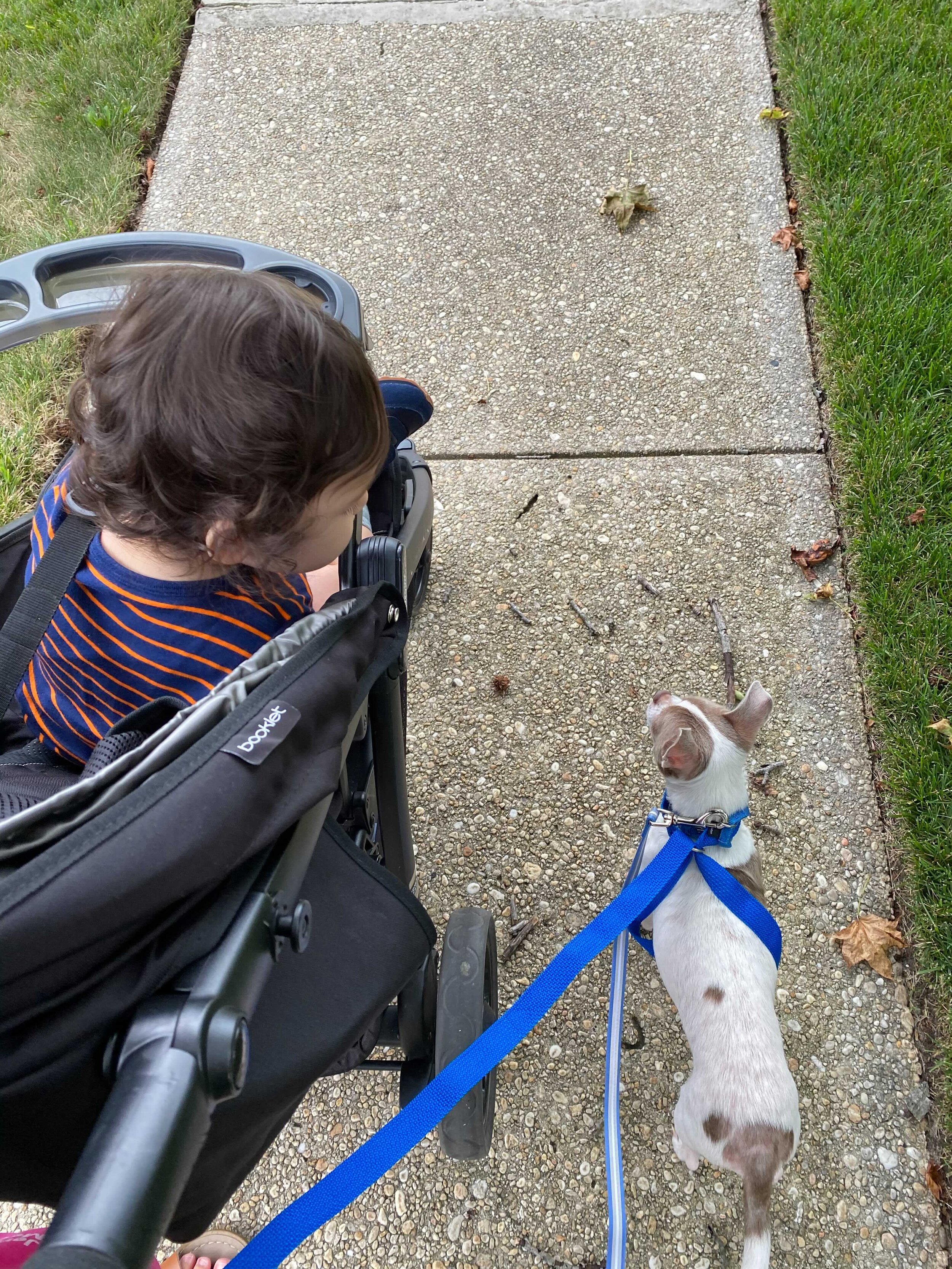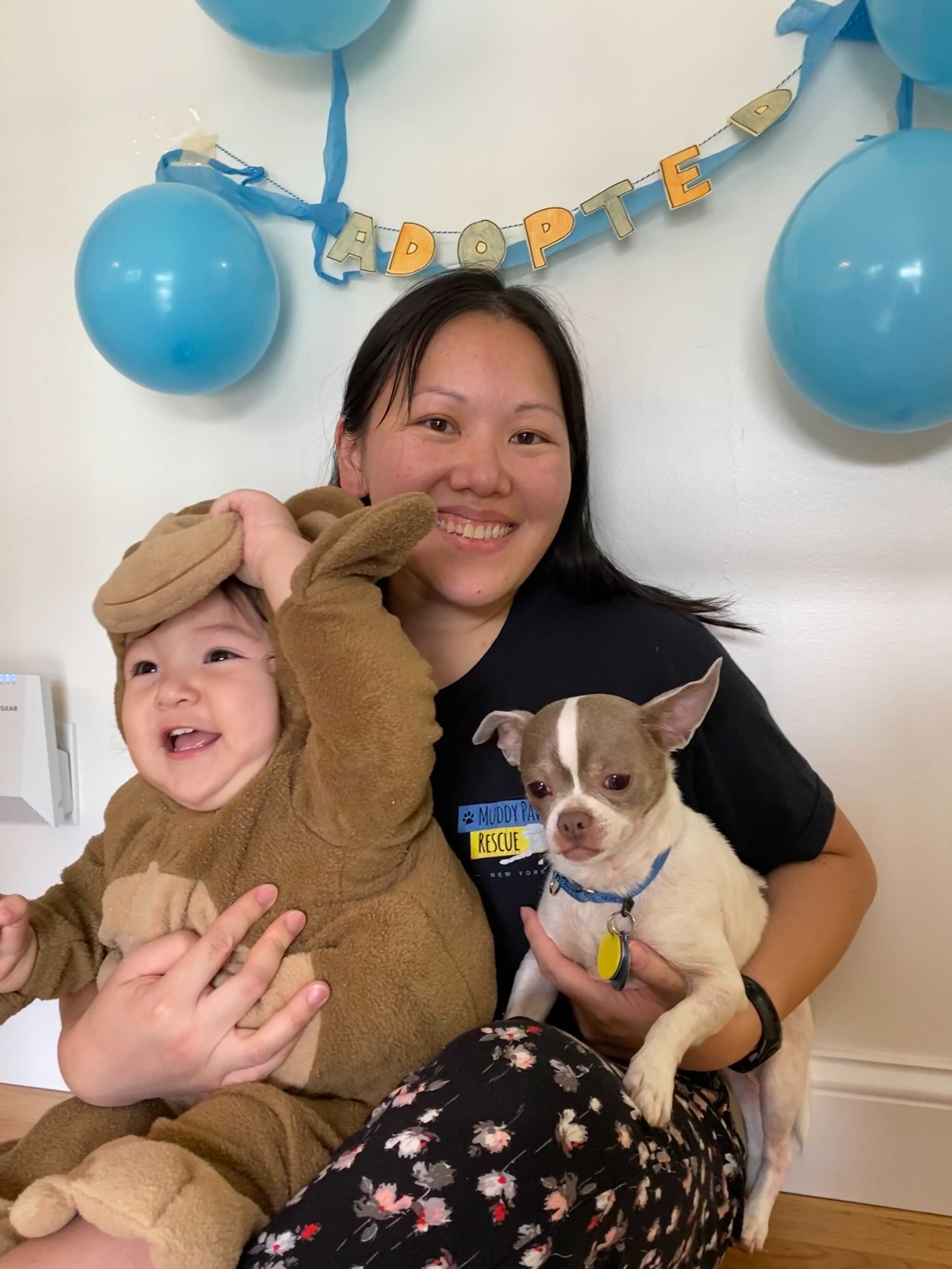⭐️ Fostering with Kids: Muddy Paws Rescue

Many of us grew up with dogs and cherish those memories. Your childhood dogs might even be what inspired you to start fostering! Fostering is a wonderful opportunity to teach your kids about responsibility, empathy, and the importance of rescue. But before those important lessons begin, we first have to make sure that the whole family is prepared to take the proper precautions to make sure everyone stays safe and happy.
While some dogs take to kids immediately, others might need some time to start feeling comfortable around them. You may find that, at first, your foster dog may feel more comfortable with you than with your kids. This is totally normal, and it even makes sense: children can be loud and unpredictable, they may have less control over how much pressure they exert when handling a dog, and they typically can't understand dog body language. The best way to make sure that your kids and foster dog have a great time together is to follow these simple DOs and DON’Ts:

DO:
Supervise! Supervision is key when fostering with children. It only takes a second for an accident to happen, so kids should never be left with your foster dog unattended, no matter how well they seem to be getting along.
Start with a slow introduction. Your foster dog has likely come to you straight from the shelter or even after a long road trip to the city. He may be overwhelmed at first. Give him time to adjust to his new home and to adult humans before introducing him to your little ones. When it’s time for them to meet, kids should be taught to let the dog come to them rather than approaching the dog on their own.
Encourage your kids to give your foster dog space. We all need our alone time, and dogs are no different. Teach your kiddos not to follow or chase if the dog walks away, and always make sure your foster dog has a safe space to go to, like his crate.
Be gentle. Wrestling, riding, or lying down on a foster dog can cause a lot of fear and stress. Kids should never roughhouse with dogs. It’s also important to make sure your kids never touch or pet your foster pup while he is sleeping!
Crate your foster dog during play time. Rambunctious play can cause a lot of excitement in dogs, whether it’s out of fear or happiness. It’s not uncommon for dogs to chase or even nip at kids who are running, screaming, or jumping around them. Encourage your children to stay calm around the dog and crate him during playtime.
Remind your kids that goodbye is the goal. Kids develop attachments quickly, so it may take time for them to get used to saying goodbye to your fosters. Before you bring your foster home, have a talk with your kids about the difference between fostering and adopting, and how each plays an important role in lifesaving. Throughout your foster’s stay, be sure to let them know how excited you are for your pup to meet his new family. Over time, your kids will feel the same!
DON’T:
Don’t let your home get messy. Have you ever noticed dog toys and kid toys look a lot alike? Your foster dog probably has. It’s safe to assume that any human toys, clothes, or food that kids leave within reach are likely to end up in your foster’s mouth, so be sure to keep things clean! Tip: Use your foster dog’s visit as a way to motivate your kids to help clean up around the house!
Don’t let your kiddos kiss or hug your foster. This is a normal way for humans to express affection, but it’s important to remember that dogs don’t share the same love language. In fact, these behaviors can seem rude and threatening to a dog. Instead, teach your kids to kiss their hand and then pet the dog with the kiss!
Don’t tolerate teasing. Kids will do anything to get a reaction out of a dog, but sometimes these behaviors can be inappropriate. Children should never be allowed to poke, prod, pinch, or otherwise tease your foster dog.
Don’t let your kids near your foster dog’s resources. Some dogs are defensive of their resources, so kids should never approach or touch a dog’s food, treats, or toys. They should also never enter the dog’s crate.
Don’t let your kids act as caretakers. Family walks are fun, but remember that your little ones are not allowed to hold your dog’s leash! Foster dog-related responsibilities must be carried out by someone 21 or older.
As always, if you have any other questions, please reach out to your Foster Buddy. Your Foster Buddy will be there with you every step of the way to make sure your foster experience is enjoyable for the whole family!


